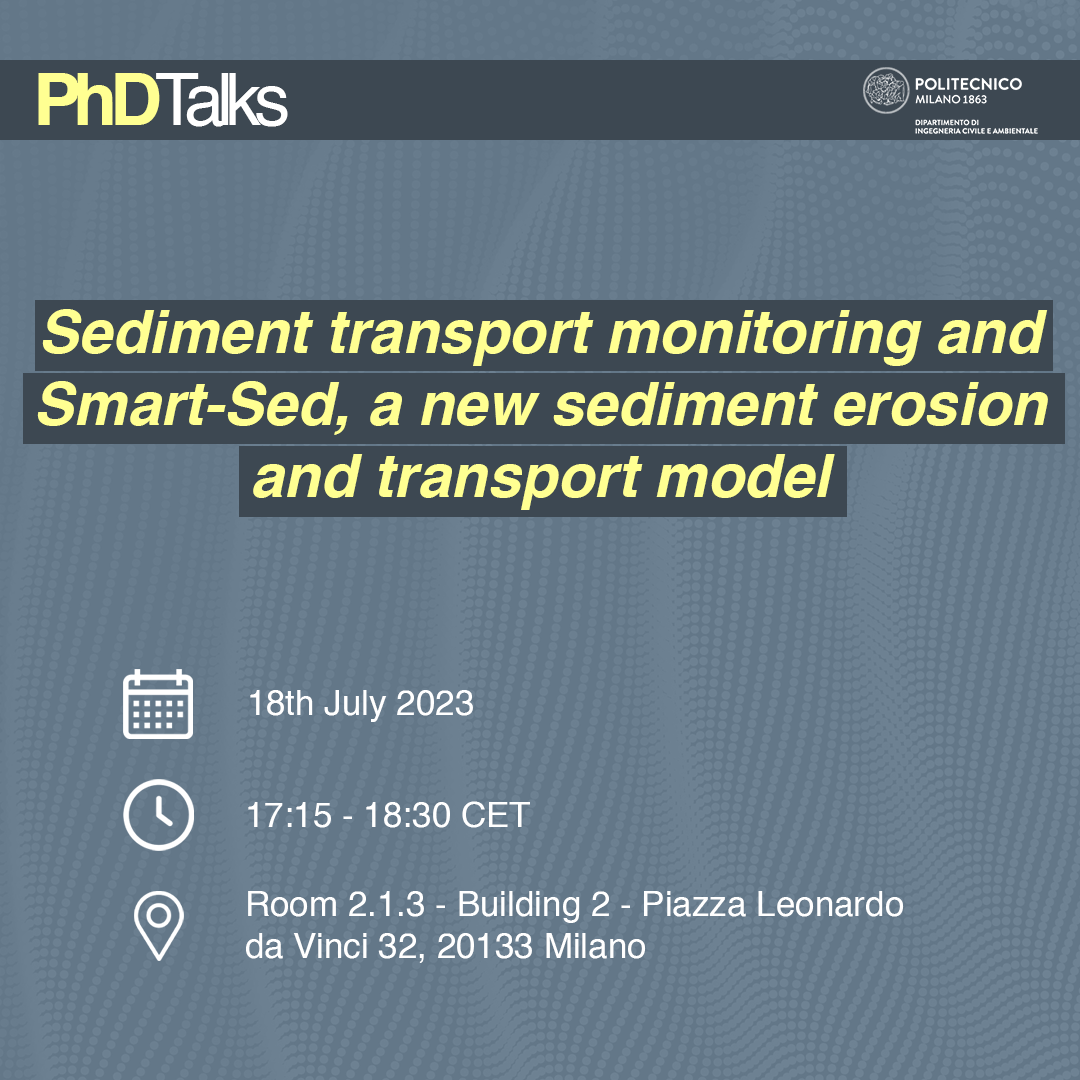
- This event has passed.
PhDTalks | Sediment transport monitoring and Smart-Sed, a new sediment erosion and transport model
18 July 2023 @ 17:15 - 18:30

We are glad to announce that our next PhDTalks Seminar will be held on Tuesday 18th July in Room 2.1.3 (Building 2), from 5:15 pm to 6:30 pm CET.
PhDTalks is a series of seminars and discussions between PhD students. The events are aimed at providing a place to network and get in contact with many of the projects developed in our department.
Speaker Monica Corti will talk about “Sediment transport monitoring and Smart-Sed, a new sediment erosion and transport model”.
At the end of each event a small refreshment funded by the department will be available.
You can watch the event online by clicking here.
Abstract:
The development of smart strategies for geo-hazard management in urban areas has lately become crucial in relation to the higher occurrence of extreme events, expected as a consequence of climate change. Therefore, the engineering geology research group of Politecnico di Milano has recently developed a new sediment erosion and transport model, called SMART-SED.
The advantages of SMART-SED with respect to other similar models are the automatic detection of the drainage zones, the statistical downscaling of soil granulometry input maps and the evaluation of the factor of safety at catchment scale. Moreover, the input data required are few and they are usually open data.
After studies on sediment transport on a mountain catchment located near the Lecco campus of Politecnico, the model was successfully calibrated and validated, given the availability of field data over time. Then, different applications were successfully tested, as the dam filling evaluation in catchments characterized by different bedrocks in the Italian Alps and in the Apennines. In addition, the back-analysis of some well-known Italian floods and debris flows events was accomplished, considering as input the relative rainfall data, and a simulation of a climate change scenario from the General Circulation Model was performed to understand possible future hazard scenarios.
A general good performance of the model was observed also for the identification of the unstable slopes and of the flooded areas, based on comparison with the Italian landslides inventory and with Sentinel Hub maps. Finally, the simulation of the climate change scenario show an increase of the magnitude of solid and water discharge that has to be taken into account for the adaptation of the actual rainfall thresholds to the future rainfall regimes.
The proof of the reliability of SMART-SED results is considered important for the development of a complete hydrological model that can represent an innovative tool for urban planning and risk mitigation in a climate change scenario.
Speaker’s bio:
Monica graduated in Geological Sciences and Technologies at University of Milano-Bicocca in 2019. She has collaborated with Politecnico di Milano working on topics related to engineering geology since 2019, and she is currently enrolled in Environmental and Infrastructure Engineering PhD program (37° cycle) at the Department of Civil and Environmental Engineering of Politecnico di Milano. Her research deals with shallow processes related to sediment erosion and transport.
In her free time, Monica enjoys hiking and travelling.
